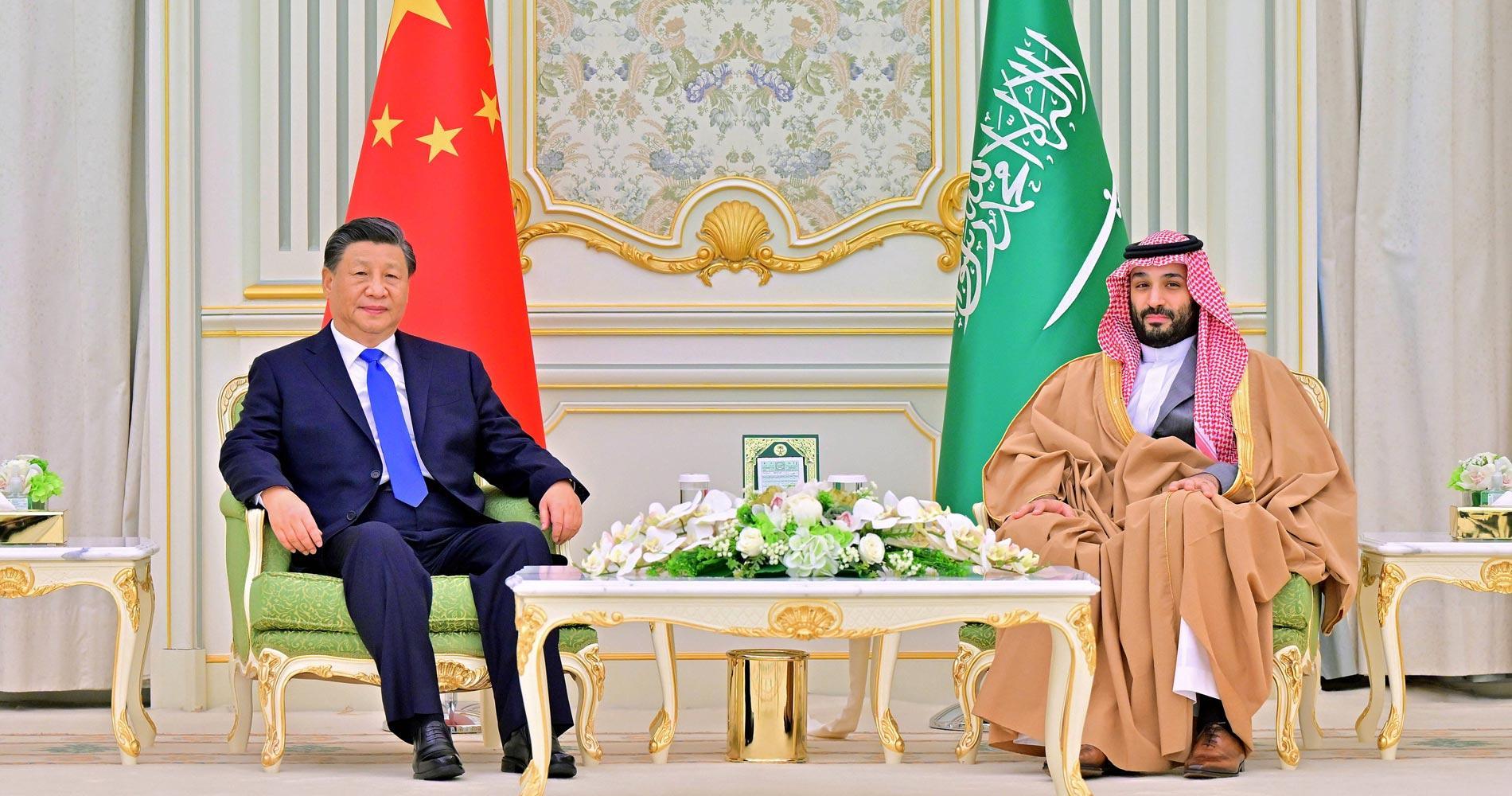Saudi Arabian and Chinese leadership have solidified a new strategic partnership that aligns policies on many issues of international interest, most notably energy. In an emerging multipolar world, this suggests that the US will no longer play such a significant role in the international sphere.
Allison Westervelt
26 January 2023
Chinese version
Chinese President Xi Jinping’s first visit to Saudi Arabia in nearly seven years will have lasting implications for the international community: The world’s largest oil exporter and the largest oil importer inked a comprehensive strategic partnership agreement. Saudi Arabia and China have aligned policies on many international issues including oil, security, the Yemen humanitarian crisis, Iran’s nuclear endeavors, and the war in Ukraine. A joint statement issued by the official Saudi Press Agency reported that China and Saudi Arabia “will firmly continue to support each other’s core interests” while not interfering in each other’s domestic affairs.
The deal emphasizes the importance of “balance and stability in the world oil markets” for the two oil trading partners.
The announcement of Saudi Arabia’s strengthened relationship with China comes at a time when Saudi relations with its traditional ally, the United States, are deteriorating. In October, Saudi Arabia, together with Russia, announced that it could be cutting oil production, thus snubbing the Biden administration which was under the impression that it had struck a secret deal with Riyadh to increase oil production in to curb inflation stateside. Moreover, the deal also dashed Biden’s hopes that lower prices would deprive Russia of much-needed oil revenue as part of a package of sanctions on Russia related to its war on Ukraine.
Also straining US relations with Saudi Arabia in recent months is the 2021 American intelligence report on the murder of Jamal Khashoggi that alleges Saudi leader Crown Prince Mohammad bin Salman approved the plan to abduct and kill the journalist.
Jon Alterman, a senior vice president at the Center for Strategic and International Studies in Washington, D.C. explains that while China and Saudi Arabia’s concerns about US global leadership are quite different, both countries concur that a unipolar world with the US at the helm is not in their best interests. While China stands to gain access to essential imports of crude oil from Saudi Arabia, Saudi Arabia will benefit from China’s technological know-how as Prince Mohammed seeks to build a civilian nuclear power program and develop a local defense industry.
The United States and China have a complex relationship. While the two are closely tied economically, the US stands in the way of China’s efforts to expand its global influence. The two are notable rivals competing for control of the Asia-Pacific region and increasingly in other regions.
As US global influence wanes compared to that of other global powers, experts speculate that Saudi Arabia is seeking new international partnerships and greater economic opportunities as other great powers compete for a larger role in the international sphere.
Oil is essential to China and Saudi Arabia’s strengthened economic ties. In view of China’s power shortages and surging global energy prices caused by the Russian invasion of Ukraine, President Xi has stressed that energy security is a key priority. In 2021, bilateral trade between the world’s second largest economy and Saudi Arabia reached USD 87.3 billion, a 30 percent increase from 2020 as cited by Chinese customs information.
A huge chunk of trade between China and Saudi Arabia is related to oil. With such a large economy, China is heavily dependent on foreign energy resources. In 2021, China imported USD 43.9 billion of crude oil from Saudi Arabia, accounting for more than three quarters of its total goods imports from the KSA. According to Chinese figures, 72 percent of its oil and 44 percent of its natural gas consumption was imported.
While Western nations moved away from importing Russian oil because of its war in Ukraine, China used this as an opportunity: Russia became China’s largest oil supplier between May and July of 2021 before Saudi Arabia took the number one spot in August. Diversity is critical for China’s energy security to avoid being subject to another country’s energy and geostrategic interests, explained Ahmed Aboudouh, a nonresident fellow with the Middle East Programs at the Washington D.C.-based think tank the Atlantic Council. It is to Saudi Arabia’s advantage to improve its relationship with China as an energy supplier, since Riyadh is loath to lose market share, although Russia and Iran offer lower prices.
China and Saudi Arabia’s new partnership signals to the global community that the United States will not continue to play such a pivotal role in the international sphere, especially in “oil politics”, as it has since the end of World War II. China is already a great power in an emerging multipolar world and Saudi Arabia has become a major regional player with increasing international influence.







